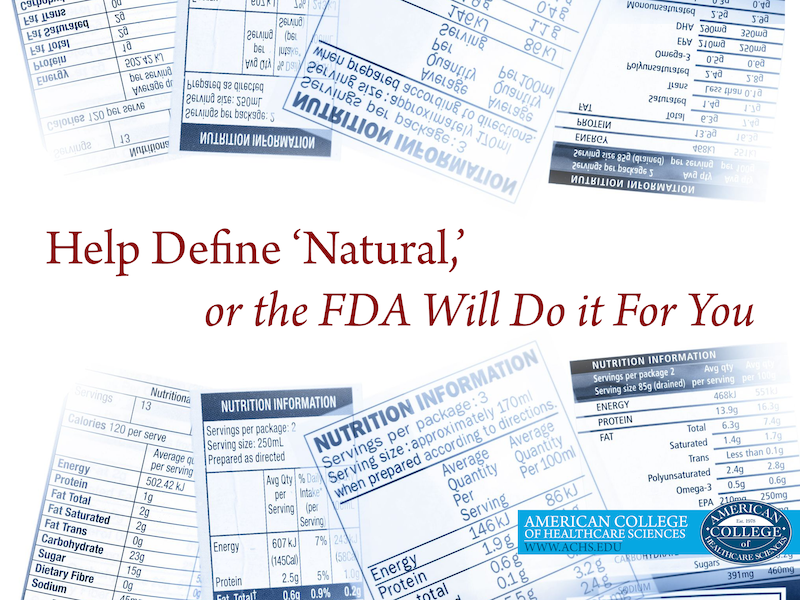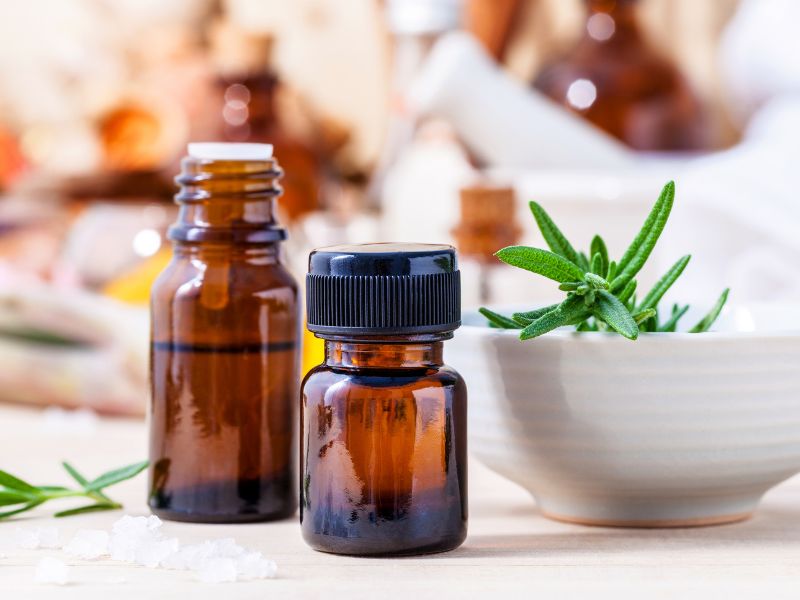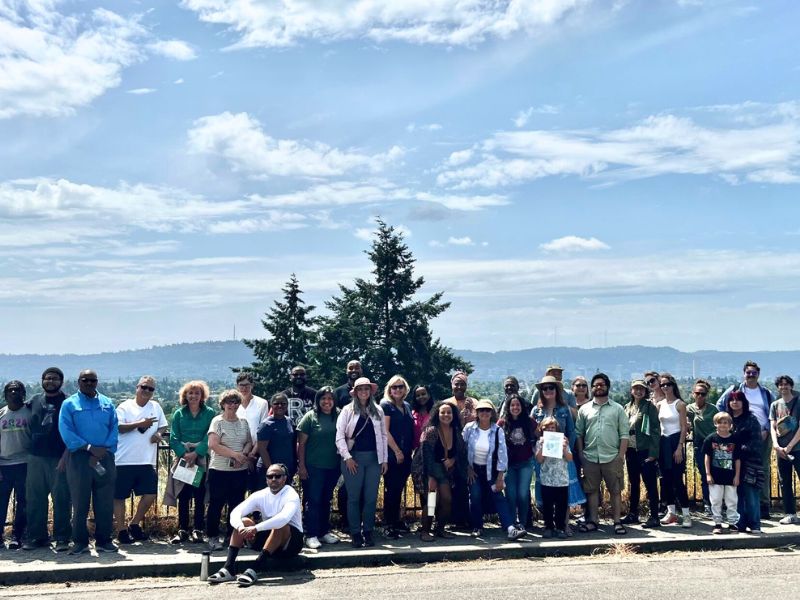You may have heard that the Food and Drug Administration (FDA) has opened a docket to collect comments from the public on what the term “natural” should mean on food labels.
I was very excited and encouraged when I heard this news. As consumers, I believe we all have the right to define the language used to market our food, and that language should be transparent—using words we can at least pronounce!
What Does Natural Actually Mean?
The Oxford American Dictionary (OAD) defines natural as “existing or obtained from nature; not made or caused by people.” I assume this definition is accepted by many of us when using the word “natural” in our daily discourse.
From nature, not people.
Seems simple, right?
When it comes to food labeling, however, the definition gets a bit hazy.
Currently, the FDA does not have an official definition for the term “natural” (and they’re clearly not following Oxford’s, either):
“We have not attempted to restrict use of the term ‘natural’ except for added color, synthetic substances, and flavors under § 101.22 (21 CFR 101.22) (56 FR 60421 at 60466). […] [W]e have considered ‘natural’ to mean that nothing artificial or synthetic (including colors regardless of source) is included in, or has been added to, the product that would not normally be expected to be there (56 FR 60421 at 60466).”[1]
Additionally, the FDA…“noted that the term ‘natural’ is used on a variety of products to mean a variety of things.”
Pretty ambiguous and confusing, right?
It’s important to note that this definition (or lack thereof) does not consider processing, pesticide residue, genetic modification, or foods or flavor and fragrance materials used in food produced by fermenting genetically altered microbes.
Why Definitions Are Important
Considering the OAD’s definition again—from nature, not people—one would assume that an apple genetically modified not to brown (a natural reaction to oxidation) would be considered unnatural.
Without an official definition, genetically modified foods such as “Arctic Apples” can, and often are, labeled “natural.”
And what about pesticides?
Again, without a definition, the process by which a food product is grown, and if that process absorbs unnatural residue (such as toxic herbicides and insecticides), does not have to be natural in order for the label to read “natural.”
But does that actually matter? As long as the food itself is grown, produced from the earth? Yes, pesticides and genetic modification matters. And it would take an entire blog post to tell you how nefarious and deadly pesticides and GMOs are for our health.
Natural vs. Organic
You may be asking: but isn’t the term “certified organic” a better way of defining nature-made, pesticide/GMO free food?
In the U.S., the United States Department of Agriculture regulates this term meticulously, so do we really need more restrictions around the term “natural?”
Yes.
I am a huge fan of organic products. It was the way my Dad grew his vegetable garden, and I have fond memories of Sunday outings to gather seaweed and horse poop! That and the influence of visionaries such as Rachel Carson who I read in the early 70’s reminds me that the regulated term organic is extremely important.
However, for many small farmers, manufacturers, and vendors, organic certification can get quite expensive. There are countless farms that utilize organic practices[2], but are unable to afford the annual cost of organic certification.
This is where an official definition for “natural” could be helpful in informing consumers on how their products are created, handled, and produced, even for those who choose not to apply for organic certification.
Tell the FDA What “Natural” Means to You
Of course, I have my own opinions on how “natural” should be defined, and I’ll be posting my official submitted commentary soon.
More importantly, if you care about what’s in your food and the language on its label, I strongly encourage you to submit your own comments to the FDA telling them what “natural” means to you and your family.
Some questions to consider:
- Should the term “natural” mean zero artificial components?
- Should the term “natural” allow for minimal processing?
- Should there be a standard for the term “natural” that is adopted and applied industry wide?
Then, take action! The FDA needs to hear from our community’s consumers, students, and experts about how marketing affects perceptions of health and how consumers and citizens make “healthy” choices based on the information they are presented and their understanding of the same.
Just a few minutes could cause a ripple effect that promotes positive change in our food industry. Each and every one of us can make a difference.
>>Click here to submit your comments to the FDA.
Disclosure of Material Connection: I am the President and Founder of American College of Healthcare Sciences, the Institution that publishes this blog. However, all opinions are my own. This blog may contain affiliate links. I am disclosing this in accordance with the Federal Trade Commission’s 16 CFR, Part 255: “Guides Concerning the Use of Endorsements and Testimonials in Advertising.”
This article is for informational purposes only. It is not intended to treat, diagnose, cure, or prevent disease. This article has not been reviewed by the FDA. Always consult with your primary care physician or naturopathic doctor before making any significant changes to your health and wellness routine.
[1] Use of the term ‘Natural’ in the labeling of human food products; request for information and comments; extension of comment period. (2016, December 2). Retrieved February 13, 2016, from https://www.federalregister.gov/articles/2015/12/28/2015-32471/use-of-the-term-natural-in-the-labeling-of-human-food-products-request-for-information-and-comments
[2] No synthetic pesticides or fertilizers, genetic modification, irradiation, or sewage sludge: http://www.ams.usda.gov/publications/content/organic-production-handling-standards




